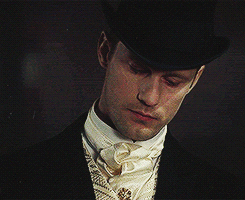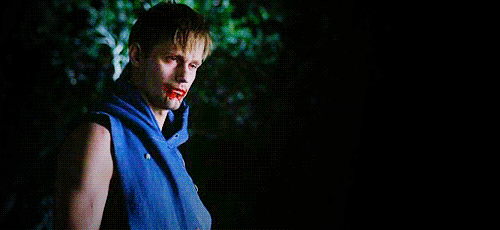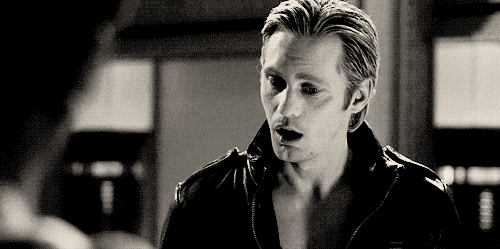Metamorphosis (OPEN)
Feb 21, 2012 19:43:47 GMT -5
Post by nasrid on Feb 21, 2012 19:43:47 GMT -5



The whole world is in chess. Any move can be the death of you. Do anything except remain where you started, and you can't be sure of your end.
It was from the rebellion. The Capitol had planted it there many years before, and had clearly forgotten to take it out, or had left it there as a remainder. The mine maimed, it killed, and it destroyed all it came in contact with. A constant reminder that the people had no power and the Capitol had it all. They held the cards, and now it was just a war for the mind.
The war for the mind, the struggle to destroy the Human condition; to destroy free will, freedoms, and peace. To teach a lesson that no one will soon forget: that the Capitol controls you. A boy strolled into that field, one with lofty ideas and ambitions of a spiritual nature. He had been walking in the field as always, on his way home. His mother was waiting for him; she had made him a treat for his efforts in the village. A mouse stumbled into the field, and he saw the rustling. One step, two steps.
Boom.
It destroyed the mouse, disassembled its many pieces and turned its blood to fine mist. Yet it did more than harm that haphazard rodent. Mines are dangerous things, and the fireball lit up the sky, and his face. It burnt it, and he fell to the ground screaming, writhing. His whole body suffered burns, but it was his face that was hit by the plume of heat that emerged from the explosion. When he was found by an overseer and brought home, he was unconscious.
He refused treatment. What good would treatment do now? His family could not afford it, and even then, he could not allow himself to be redesigned, to be reformed. It was God’s will that his face was disfigured, that he was horribly burnt. He lay in bed, and the pain continued for many a day. His mother stood at his side, and the District provided subsidies due to his condition. People came to visit him, to pay their respects to the boy that had taught them about faith. They knew he was to die soon, and that his mother would no longer be able to take care of herself. Indeed, it was a time of mental anguish for the village.
Yet Einkorn did not fear. In fact, this changed him more than anything. In his deep, deep sleep, under the bandages and the rags which hid his face from the world, he saw wonders. He saw his grandparents, but he also saw God. He saw the angels that danced around the divine being like dancers in some capitol club, and he saw all the incredible sights of Heaven and of a vanished world. The last gasp of a land long since gone, an Ozymandias in the flesh. So he did not die. He lived, and after a week, he awoke from his coma, and emerged to find his village around him.
So he told them. When they were not working they came to him, and he told them of wonders. He told them of God, and of faith, and of hope, and of salvation. They pondered with him, and they congregated to him. He spoke to them, as though his voice was now lower than it had been, it was not disfigured. That, at least, he had managed to keep.
He recovered much quicker than any thought, but his face was permanently disfigured. He wore a cloth around it, to protect it from unkind onlookers, and came back from the brink much quicker than many had expected. They claimed it was a miracle; he saw it as a curse. He knew God had chosen him for a horrid mission, to win the Hunger games. He had to win that, for it was a mandate of Heaven, passed down to him.
He took advantage of the leave he had to train himself, by fashioning all sorts of weapons from wicker, and creating wicker shields. He practiced some sorts of camouflage, especially the practice of lying down in the field to appear as you are part of it. His face did not please him, however. It was impure, horrid, a reminder of a mirage that was taken away from him. He spent many anguished nights thinking of ways to rid him of life, to join God and to flee from this world where children fight each other for the entertainment of a lavish few.
He disappeared for a week, and many had claimed he had died. It was a convenient claim, for they did not want an investigation into his whereabouts that may bring his family in, or trouble those that had come to his for discussions and for guidance. For a week there was no sign of him, but at the end of it, when the dew evaporates and the sun begins to rise and make the curtain of stars flee like a young ram, he emerged from the forest.
He had an epiphany in that forest, but of what no one will say. What they do know, however, is that they do not call him Einkorn anymore. He came to his mother’s house one day, as she was preparing dinner on the hastily repaired stove, fuelled by dirty coal. His entrance was greeted by a crash of the dishes, and she stood back in awe of the being that had entered the room. This was Einkorn, and yet it wasn’t. She could recognize her baby boy, but he had changed. What remained of his face lay behind a thick mask of wood and wicker.
The mask was simple, and yet it was done with the hands of a master, and indeed, only a master could have created it. It wrapped neatly around the face, and made creases reminiscent of a normal one’s. Behind it lay padding to comfort the face. Small breathing holes punctured the mask, but they were so subtle that it would be difficult to think that they could allow you to breath.
His arms were covered with makeshift bandages and wicker as well, and of his face only his eyes could be seen, his mouth a narrow slit through which one could speak. A narrow strap attached the mask to his face, and it was difficult to remove by any stretch of the imagination. It had become an extension of him, an appendage with which he could not live without.
With a gaping mouth and shaking hands she questioned him, but all that came out was a whispered croak, so great her shock was.
“E-Einkorn?! Is that you?” The shadowy figure stared at her through those kind but hollow eyes, and his expression turned to one of refusal.
“Einkorn is dead. I am the wicker man. It is time I go again to the fields, for I miss the reaping and the harvest.” His voice was soothing and calm, but lacked any sort of real emotion. He did not pause to think of her opinion; he whispered ‘God wills it’ into her ear, and departed.
Anyone that had half an eye could have noticed the masked one striding into the field, as though he was normal and that this was normal occurrence. He did not care for the gaze of the Overseer or the other farmers; he reaped and harvested and surveyed the land, looking at it, and inspecting it. It was winter now, and though the land still had some snow-stained crops and ripened apples, it was not fit for any sort of real harvest, and so he shook his head, and walked in the snow, his straw hat above his mask.
A lone figure, one who could contemplate the wonders of nature without worrying of the whip. Emotions and facial feature alike hid behind the mask, a dam to hide the feelings of despair, of sadness, and of the knowledge that he was to delve into an enterprise where he could die. He liked it better this way. More time for thought.
[/FONT] [/center]



































































